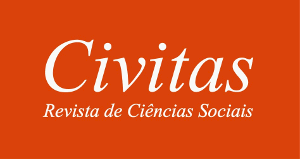Abstract:
This article aims to analise how the Brazilian State of Rio Grande do Sul (RS) projects its distinctive cultural identity internationally. It does so by identifying the cultural elements in the state's paradiplomacy from 1987 to 2014 through a sequence analysis including two elements: RS's paradiplomatic and cultural institutions; RS's paradiplomatic agenda. Three phases are identified in terms of space given to culture in the paradiplomacy institutional framework: expansion (1987-1994); retraction (1995-2010); expansion (2011-2014). The phases are slightly different in terms of agenda: will but lack of means (1987-1990); focus on other issues (1991-2010); construction of an incipient agenda (2011-2014). Also, the 2012 actions to structure cultural policy at federal and state level can be seen as a factor for the agenda expansion in the last phase. However, despite the discourse around the gaúcha identity being present within the state and country, the projection further afield remains weak. Generally, the multiple changes in institutional framework and agenda show that a long-term project has not been decided on. Thus, the resulting policies are highly dependent on each governor's vision.
Keywords:
Paradiplomacy; Culture; Rio Grande do Sul
